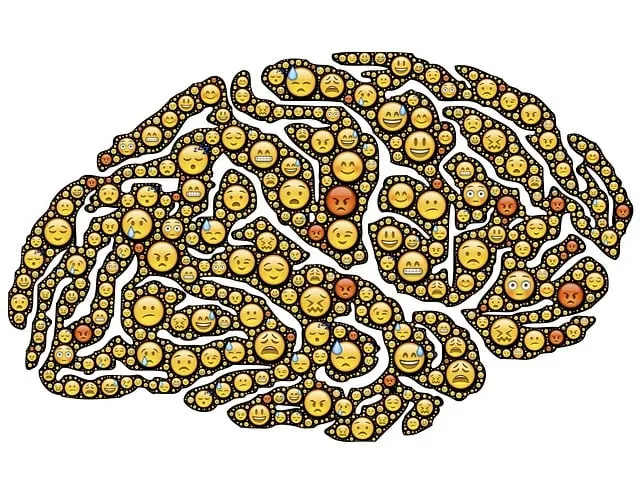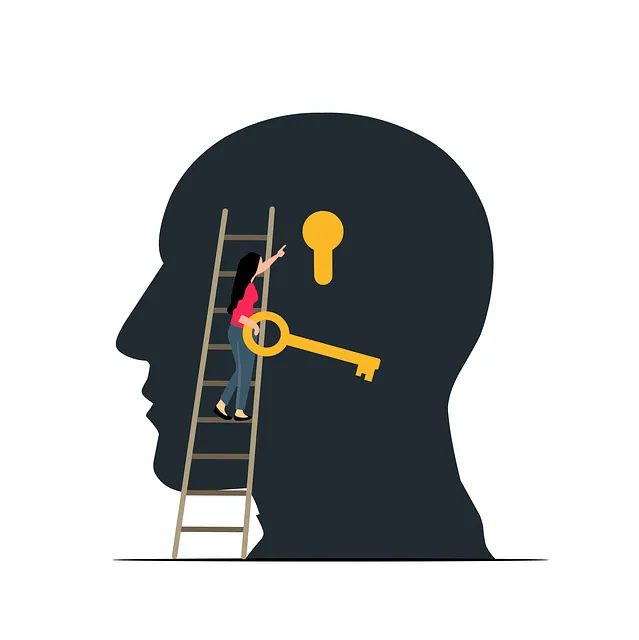In response to growing demand for accessible mental wellness support, institutions like the Broomfield Kaiser Permanente Mental Health Appointment Center have recognized the potential of mental wellness apps. These apps offer personalized tools for self-esteem improvement, mindfulness meditation, and burnout prevention tailored to diverse users, including healthcare providers. Key features include mood tracking, guided meditations, cognitive behavioral therapy (CBT) techniques, and community forums or virtual reality social spaces. By leveraging expertise from centers like Broomfield Kaiser Permanente, developers create apps that enhance emotional regulation, improve accessibility, and contribute to broader mental health awareness.
In today’s fast-paced world, mental wellness app development has emerged as a crucial tool for managing stress and promoting well-being. With an increasing demand for accessible mental healthcare solutions, these applications offer a convenient way to support users’ psychological needs. This article explores the growing importance of mental wellness apps, delving into key features, development processes, and successful integration models, such as the Broomfield Kaiser Permanente mental health appointment center, which showcases innovative practices in digital mental healthcare.
- Understanding the Need for Mental Wellness Apps
- Features and Components of Effective Apps
- Development Process: From Concept to Launch
- Integrating with Healthcare Systems: The Broomfield Kaiser Permanente Model
Understanding the Need for Mental Wellness Apps

In today’s fast-paced and demanding world, mental wellness is more important than ever. Institutions like Broomfield Kaiser Permanente Mental Health Appointment Center recognize the growing need for accessible and effective mental health support. Traditional therapy sessions may not suit everyone’s schedule or preferences, which is where mental wellness apps step in as innovative solutions. These apps cater to a wide range of users, offering personalized tools for self-esteem improvement, mindfulness meditation, and burnout prevention strategies specifically tailored for healthcare providers.
By integrating features like mood tracking, guided meditations, and cognitive behavioral therapy techniques, these apps provide a convenient and discreet way for individuals to manage their mental health. With the rise of remote work and digital communication, there’s a heightened risk of burnout among healthcare professionals, making dedicated wellness apps even more crucial. These applications not only help users maintain balance but also foster resilience, ensuring they can navigate life’s challenges with greater ease and well-being.
Features and Components of Effective Apps

Effective mental wellness apps are designed with a holistic approach to support users’ emotional well-being. Core features include personalized dashboards where users can track their moods, set goals, and access tailored resources like guided meditations, cognitive behavioral therapy (CBT) techniques, and mindfulness exercises. Integration of tools for self-assessment and progress monitoring is crucial, enabling users to gauge their mental health status over time. Many successful apps also incorporate community features, fostering connections through forums, peer support groups, or even virtual reality social spaces, mirroring the supportive environments offered by institutions like Broomfield Kaiser Permanente mental health appointment centers.
Beyond individual interventions, app developers should focus on enhancing emotional regulation and empathy building strategies. This could be achieved through interactive content such as educational modules on stress management, emotional intelligence workshops, or even a Mental Wellness Podcast Series Production tailored to diverse user needs. By combining evidence-based practices with engaging interfaces, these apps have the potential to revolutionize mental healthcare access, making it more accessible and appealing to users seeking support for their emotional health in the digital age.
Development Process: From Concept to Launch

The development process for a mental wellness app begins with a deep understanding of the target audience’s needs, which in this case, is grounded in the expertise and insights gained from institutions like Broomfield Kaiser Permanente mental health appointment center. This phase involves extensive research to identify specific challenges individuals face regarding mood management, stress reduction, and accessing mental healthcare resources. By drawing on professional knowledge and public awareness campaigns development strategies, app developers can create features that are both innovative and clinically relevant.
As the project progresses towards launch, the team focuses on translating these findings into intuitive, user-friendly features. This includes crafting engaging content, incorporating evidence-based practices such as conflict resolution techniques, and ensuring seamless integration with existing healthcare systems. Quality assurance testing is crucial to ensure the app’s reliability and security, particularly when handling sensitive user data. The ultimate goal is to deliver a tool that not only supports individual mental wellness journeys but also contributes to broader public awareness campaigns development by making mental health resources more accessible and engaging for all users.
Integrating with Healthcare Systems: The Broomfield Kaiser Permanente Model

In recent years, the integration of mental wellness apps with healthcare systems has gained significant traction, with the Broomfield Kaiser Permanente mental health appointment center serving as a notable example. This model showcases how digital solutions can seamlessly complement traditional healthcare services, enhancing accessibility and effectiveness in managing emotional well-being. By integrating with established healthcare systems, these apps not only facilitate easier scheduling of mental health appointments but also enable continuous care, bridging the gap between in-person sessions.
The Broomfield Kaiser Permanente approach emphasizes holistic wellness, focusing on both emotional regulation and inner strength development. This strategy extends beyond simply addressing symptoms to empower individuals with tools for long-term burnout prevention. Through app features like personalized therapy plans, mood tracking, and access to mental health professionals, users can proactively manage their mental health, fostering a more sustainable and resilient lifestyle.
Mental wellness apps have emerged as powerful tools in addressing the growing need for accessible and personalized mental healthcare. By understanding user requirements, incorporating essential features, and leveraging healthcare integration models like the Broomfield Kaiser Permanente approach, developers can create effective solutions that complement traditional therapy. These apps have the potential to revolutionize mental health support, making it more convenient and inclusive for individuals seeking assistance. Adopting innovative development processes ensures these tools meet user needs and integrate seamlessly with existing healthcare systems, such as the Broomfield Kaiser Permanente mental health appointment center, ultimately enhancing overall well-being.






